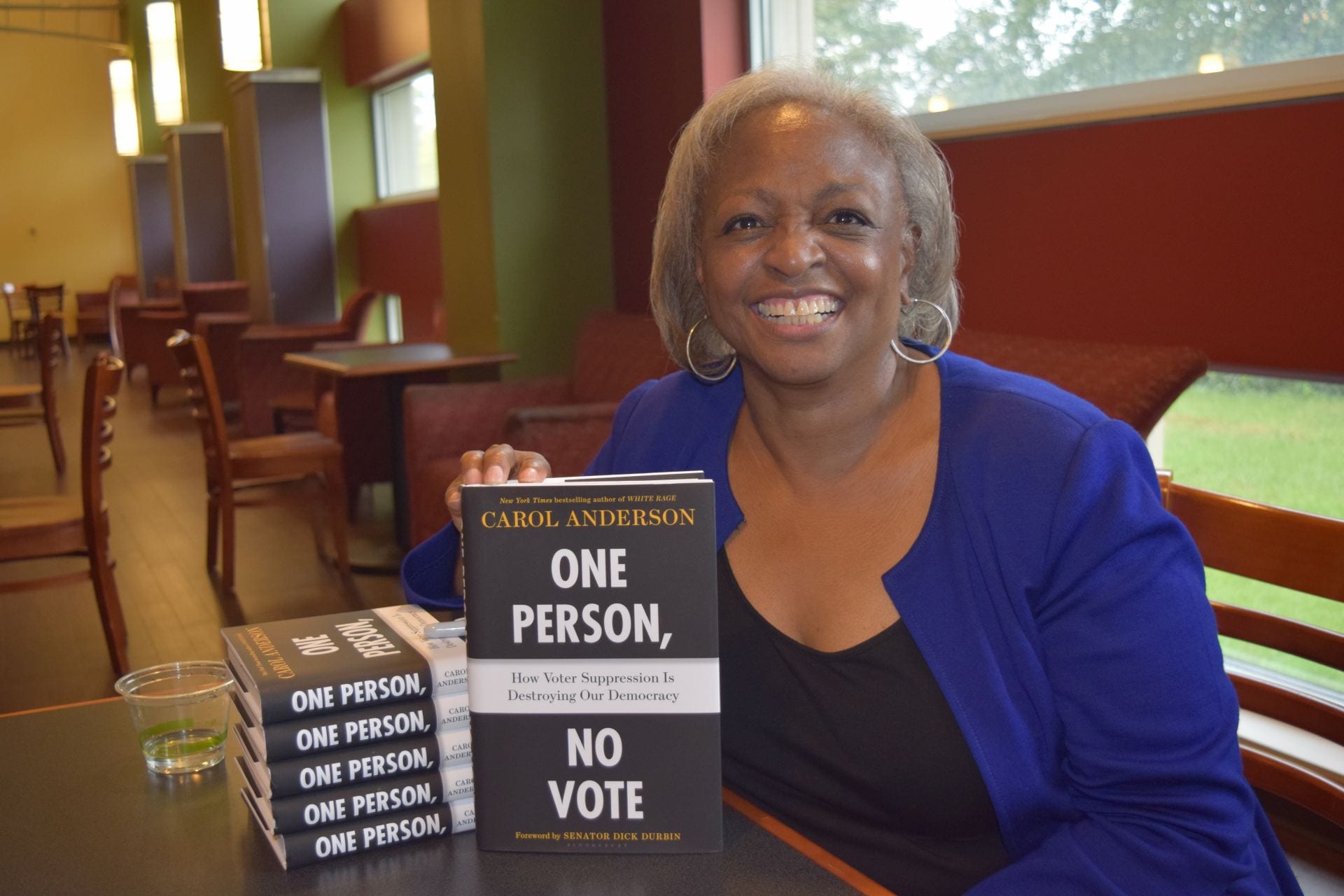
Carol Anderson poses with her newly released book: “One Person, No Vote: How Voter Suppression is Destroying Our Democracy.” Credit: Momina Tashfeen | Lantern Reporter
On Wednesday, Carol Anderson, author and civil rights thought leader, spoke at the Moritz School of Law about the threat voter suppression poses to democracy. Anderson recently released her third book of the same topic, titled, “One Person, No Vote: How Voter Suppression is Destroying Our Democracy.”
Anderson spoke about the history of disenfranchisement of women, people of color, low-income citizens and other minority groups.
“When we think about ways that states in this nation have stopped black people from voting we often think about Macio Snipes,” Anderson said.
Anderson earned her doctorate degree in history from Ohio State, and is the author of New York Times Best Seller, “White Rage: The Unspoken Truth of Our Nation’s Divide.” As a distinguished historian, she told the story of Maceo Snipes, a World War II Veteran that was shot to death in Georgia for voting during the Jim Crow era.
“After World War II, black people came out of the war, fighting for their freedom, fighting for their democracy,” Anderson said. “This was about putting them back in their place.”
Anderson went on to explain how the U.S. had to figure out a way to dance around the 15th Amendment. The first state to figure it out was Mississippi, and the state did so by developing deterring tactics including poll taxes and literacy tests.
“You had to start paying at 21, if you can’t figure out how to vote until 41, you owe 20 years of polls tax,” Anderson said.
Anderson called the literacy test the “equally-evil twin sister” of the polls tax. African Americans, were essentially accused of not being wealthy or educated enough to cast a vote, Anderson said.
Fast-forwarding to the 2000 elections, Anderson discussed events that happened in St. Louis.
“The scholarly term is hot mess,”Anderson said. “In that 2000 election, almost 50,000 people purged — removed from the voter rolls illegally, shortly before the election.”
Anderson explained when citizens came to vote in the 2000 elections, and their names weren’t on the electoral roles due to illegal removal of voters from registration. These people were sent downtown to the Board of Elections, meanwhile the clock on the polls were ticking.
These events brought about the Help America Vote Act, which helped people understand when their rights were being violated, bettering voting systems and eliminating voter fraud.
Lynette Dixon, former student of Anderson and a second year master’s student in African American and African studies said, “It’s really important for the moment right now, and to really understand how we go from someone like [former president Barack] Obama to [President Donald] Trump.”
“It’s a call to action, to really understand these things,” Dixon said.
Anderson concluded: “What we have seen operating, is a series of lies couched in realities that are designed to undermine democracy. We must understand that voting is not a privilege. It is not an obstacle course. It is a right”.


